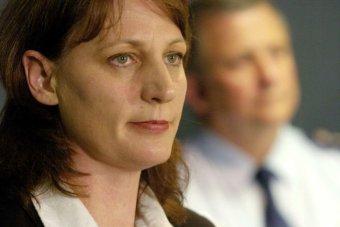|
Catholic Church offered MOU on child abuse despite mandatory reporting laws, Police Integrity Commission hears
ABC News
The Catholic Church drafted a Memorandum of Understanding to share information with the NSW Police Force in 2004 despite being told a year earlier that the agreement breached child abuse mandatory reporting laws, an inquiry has heard. The Police Integrity Commission had previously heard the MOU was designed to open up lines of communication between the church's Professional Standards Office and the Child Protection Enforcement Agency, to facilitate the sharing of information relating to allegations of child sexual abuse by members of the clergy. But a 2003 letter from Commander Kim McKay from the Child Protection Squad to Michael McDonald, who was the head of the Catholic Commission for Employment Relations, advised that the unsigned MOU breached section 316 of the Crimes Act. In the letter, Ms McKay said "the draft MOU has not been approved by the NSW Police Service, and the arrangements proposed by the MOU are not currently in place". She went on to state that "the arrangements proposed by the draft MOU appear to be in direct conflict with the explicit legislative requirement of section 316 of the Crimes Act". Section 316 of the Crimes Act states that a person who knows or believes a serious indictable offence has been committed and fails to pass that information onto police is liable and could be imprisoned for two years. Commander McKay's letter was in response to a request from Mr McDonald, seeking confirmation that the unsigned MOU remained in place. But evidence Mr McDonald gave to the commission on Wednesday appeared to be at odds with his letter from 2003. Catholic body unaware if MOU is in placeUnder questioning from counsel assisting the commission, Kristina Stern, Mr McDonald said he did not know if the MOU was in place or not. "I wouldn't be able to tell you wether it was in place or not, other than it existed," Mr McDonald told the inquiry. "It was never a headline issue for the Professional Standards Resource Group, but I was aware in the background that some work had been done on an MOU."
Meanwhile, the first Commander of the Child Protection Enforcement Agency, which sits within the NSW Police Force, told the commission on Wednesday he sought to establish an "arrangement" or "process" with the Catholic Church's Professional Standards Office to facilitate the provision of information relating to allegations of sexual abuse. Detective Superintendent John Heslop (retired) became the agency's first commander when it was set up in 1997. He told the commission he met with Father Brian Lucas, who drafted several versions of a MOU. Counsel assisting Kristina Stern asked what they discussed at the meeting and whether they developed a protocol between the Professional Standards Office and the police. "I don't think we ever got that far, our meeting was a meet and greet," he said. Former commander cannot recall MOUOn further questioning, Mr Heslop said he could not recall ever submitting a draft MOU to the church. "I don't [recall] yet I don't dispute it might have taken place but I have no recollection," he said.
The commission is also investigating whether the appointment of then-senior sergeant Elizabeth Cullen to the Church's Professional Standards Resource Group, set up to investigate allegations of sexual abuse, amounted to police misconduct. Mr Heslop told the commission he was aware Senior Sergeant Cullen sat on the internal church panel and said he would have expected her to report any allegations of sexual abuse she became aware of. "I would have expected her to convey to the police service any information she became aware of," Mr Heslop said. He was asked if he ever told her that she was to relay any information to the CRPA. "I don't remember specifically but I can't say that I couldn't," Mr Heslop replied. Mr Heslop said he was unaware the Professional Standards Office shared its information with police through the use of blind reports, where police are only told that an allegation has been made and the victim's name is suppressed. "I would have thought having as much information as possible to entail to police would have been beneficial," he said. Intelligence sharing due to "great frustration"Mr Heslop said the intelligence-sharing process was set set up due to the "great frustration" obtaining information on alleged sexual offenders in the wake of the 1996 Wood Royal Commission.
He said police became aware of allegations of sexual abuse by members of the clergy as a result of evidence tabled in the Wood Royal Commission but the accused were often relocated within the church before police could interview them. "It was extremely frustrating," Mr Heslop said. "Often they were recalled to the Vatican or deployed elsewhere before we could talk to them." Mr Heslop described the arrangement as "a process rather than a system" and said Father Brian Lucas acted as a point of contact for officers with the CPEA. The commission was expected to sit for the next two days.
|
.
Any original material on these pages is copyright © BishopAccountability.org 2004. Reproduce freely with attribution.
